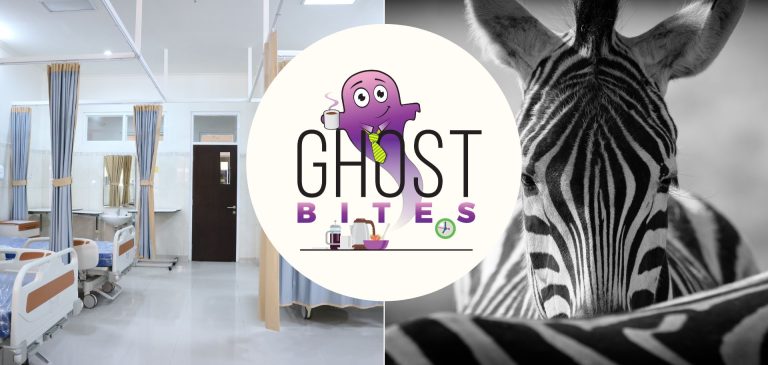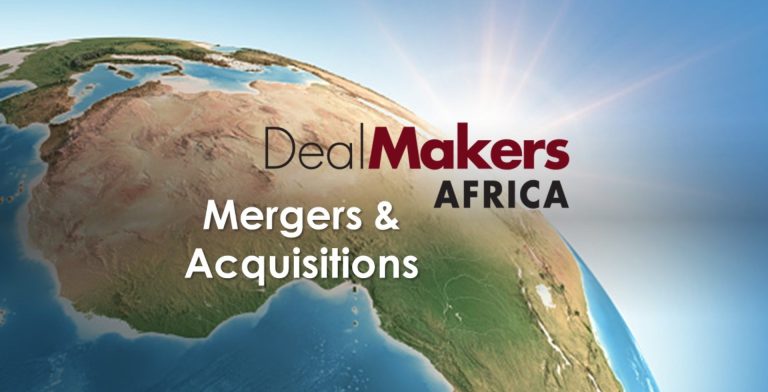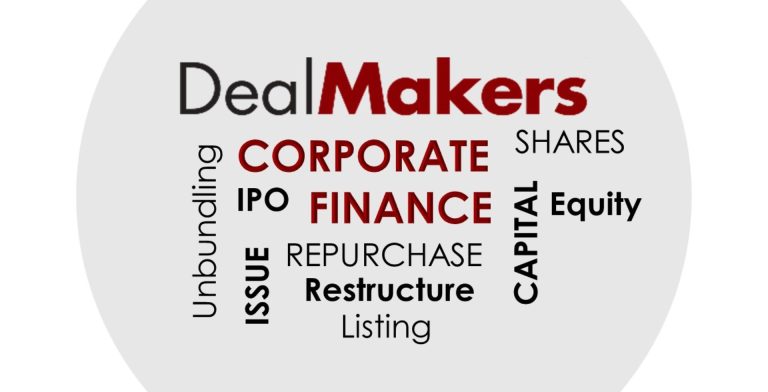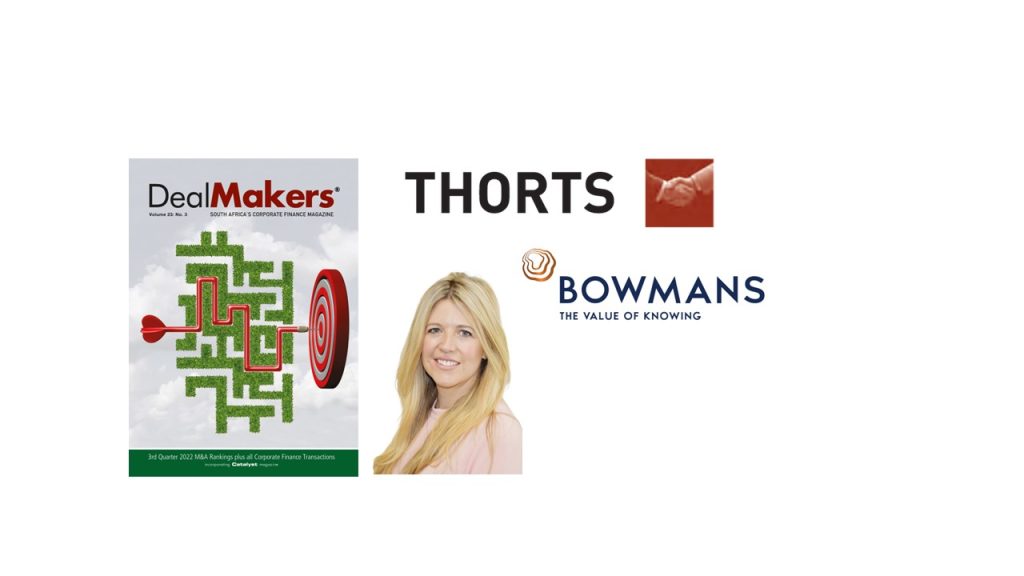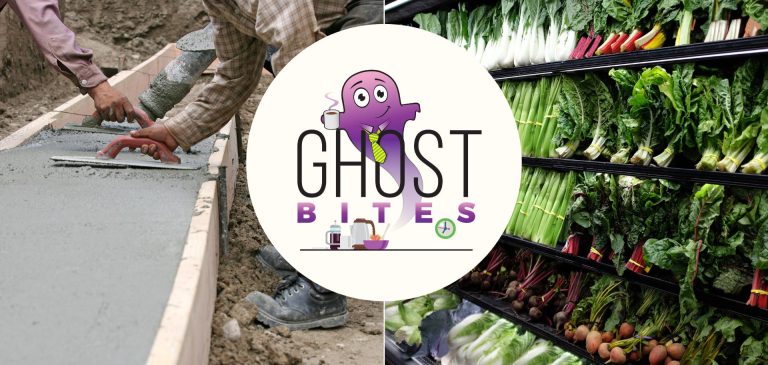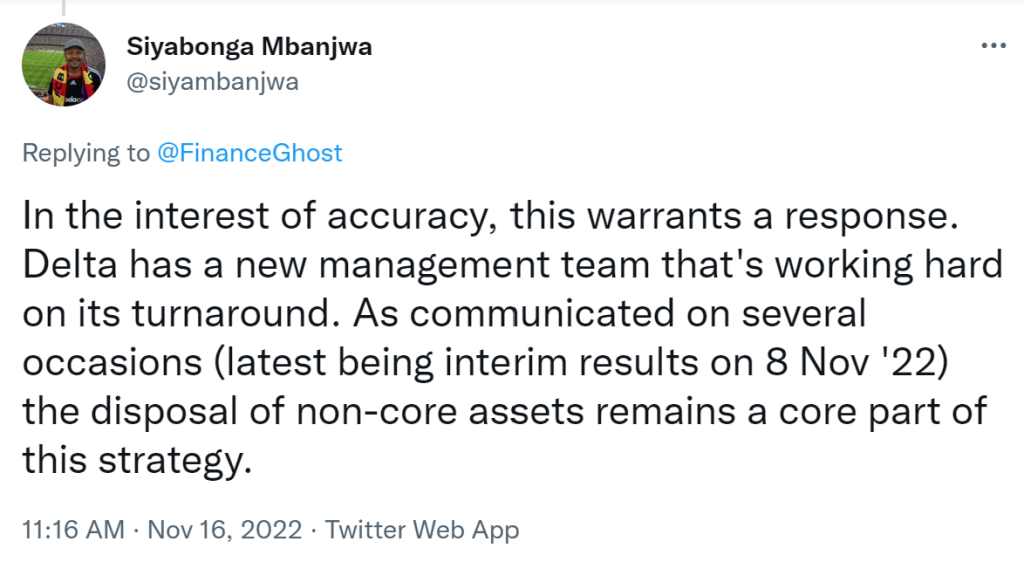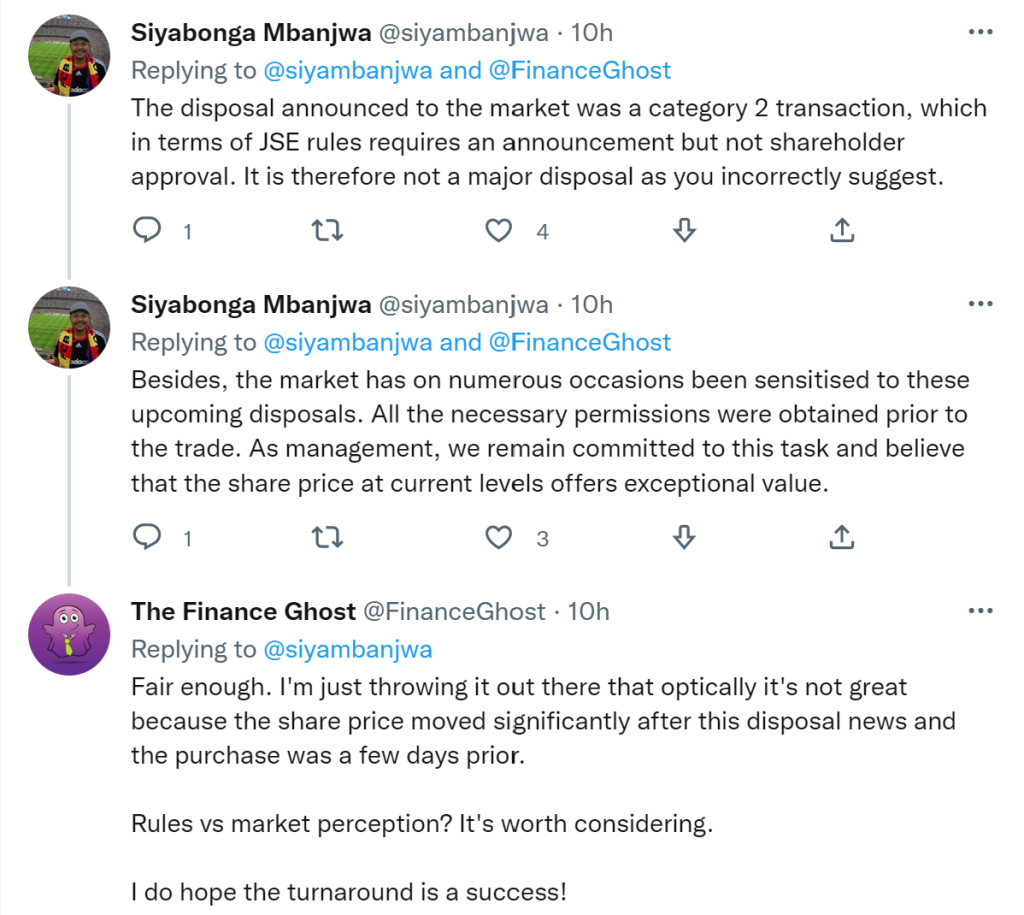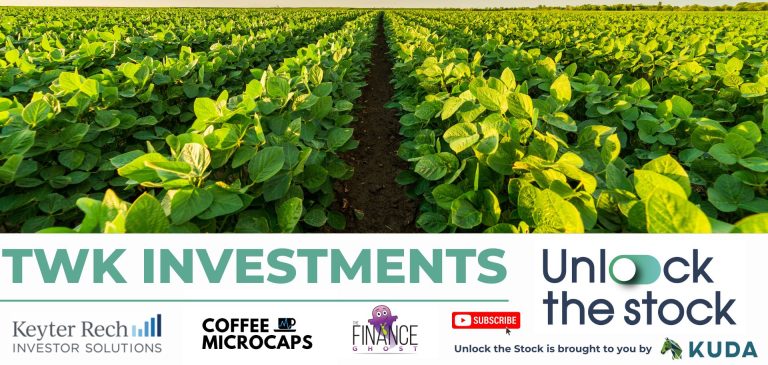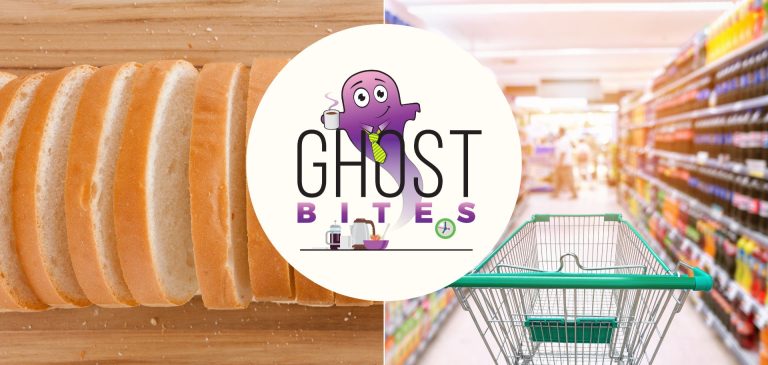If you enjoy Ghost Bites, then make sure you’re on the mailing list for a daily dose of market insights in Ghost Mail. It’s free! SIGN UP >>>
Harmony Gold’s metrics are under some pressure
Production is lower and costs per kilogram have increased
Harmony released an operational update for the three months ended September. The good news is that free cash flow grew by 17% and the cash flow margin improved to 8% from 7%.
The cash outcome is somewhat surprising, as other metrics don’t look great. Production fell by 4% due to the closure of Bambanani. In the international segment, production fell by 28% with lower production at Hidden Valley as expected.
Group all-in sustaining costs increased by 5% to R907,864/kg because of the decrease in production. With the gold price only up by 1% in rand terms, that’s not ideal.
Net debt to EBITDA increased from 0.1x to 0.26x due to currency translation and working capital movements.
The company believes that it remains on track to meet the FY23 guidance.
Looking ahead, the company believes that its further investment in copper will bring lower-risk, near-term copper into the portfolio, achieving more diversification in the operations.
Investec signs off on a great period for earnings growth
Adjusted earnings per share growth of 25.1% is at the top end of guidance
Investec is a rather complicated animal. There are wealth management and lending businesses and the footprint isn’t just in South Africa, as Investec is active in the UK market as well.
Funds under management fell by 7.6%, a function of the drop in global markets this year. Importantly, net client inflows were strong at £202 million.
In the lending business, net core loans grew 7.1%, driven by corporate lending in SA and the UK as well as UK residential mortgage lending.
Moving to the income statement, revenue grew 18.9% and the cost to income ratio improved from 64% to 60.5%, with the net impact on pre-provision adjusted operating profit being growth of 29.5%. The contribution from both geographies was strong.
Although the credit loss ratio has increased from 7 basis points to 15 basis points, Investec believes that asset quality remains strong.
Return on equity has increased from 11.2% to 13.0%.
At net asset value level, the strong performance was offset by the unbundling of a 15% stake in Ninety One to shareholders. Tangible net asset value per share is flat year on year.
The interim dividend of 13.5 pence per share is 22.7% higher and reflects a 41% payout ratio.
Life Healthcare’s recovery in SA couldn’t offset the UK drop
Although earnings are slightly down, there’s a substantial increase in the dividend
For the year ended September 2022, Life Healthcare enjoyed a better second half after a slow start to the year.
It’s not intuitive, but Covid was a very bad time for hospital groups. Although the beds were filled with Covid patients, they weren’t filled with people recovering from elective surgeries and that’s where the money gets made.
Things are far more “normal” now, with 15.8% growth in acute hospital admissions, 14.8% growth in theatre minutes and 13.8% growth in mental health admissions. The latter statistic is something that I always find upsetting, as that’s the true legacy of the pandemic.
Revenue growth of 6% was enough to drive normalised EBITDA growth of 18.3%, a perfect example of operating leverage. Hospitals have substantial fixed costs, which means the good times are really good and the bad times are horrible.
Life is expanding in the radiology side of the business, with two acquisitions that became effective this year (one in February and one in August). They contributed R94 million to revenue (vs. R28.2 billion group revenue) and the full year impact will only be seen next year.
In the UK, Alliance Medical Group delivered 2.8% revenue growth. Due to Covid-related contracts falling away, normalised EBITDA dropped by 11.9%. Life’s business is interesting in that one part of the business suffered during Covid and the other benefitted.
Net debt to EBITDA of 1.89x is far below bank covenant levels of 3.5x. The group’s inaugural bond programme raised R1 billion during the year and was 4.5 times oversubscribed, which means the market really likes Life’s debt!
The net result of the good news in SA and the drop in the UK is a 4.5% decrease in headline earnings per share (HEPS). With far more certainty on market conditions, the dividend was increased by 60% to 40 cents per share, a pay-out ratio of 37.7%.
Netcare’s earnings are higher
For now, all we have is a trading statement
In a day of news for hospital groups, Netcare added its voice to the recovery party with an expected increase in HEPS for the year ended September of between 20% and 20.7%.
The company also released an adjusted HEPS number that excludes other elements that management believes are not useful for investors to consider. Adjusted HEPS will increase by between 23.1% and 23.9%.
Full results are expected to be released next week Monday.
NEPI Rockcastle revises earnings guidance higher
There is strong momentum in tenant sales
NEPI Rockcastle has had a busy year. The corporate headquarters were relocated to Netherlands, which means the company is now domiciled within the EU. When combined with the fairly modest leverage on the balance sheet (loan-to-value ratio of 31%), this gives NEPI Rockcastle an attractive corporate structure.
Operationally, tenant sales are showing positive cadence, which is a fancy way of saying that sales have accelerated over the course of the year. Fashion retailers are running well ahead of pre-Covid levels and entertainment tenants still haven’t closed the gap to 2019 numbers.
Interestingly, footfall for the first nine months of the year is 19% higher than the previous year and 12.4% lower than the same period in 2019.
Net operating income is 18% higher year-on-year, driven by the decrease in Covid-related discounts.
Guidance for the full year is growth in distributable earnings per share of 38%. This is up from the previous guidance of 33%. Naturally, this assumes that there won’t be an escalation in the war in Ukraine that affects neighbouring countries.
Little Bites:
- Director dealings:
- Directors of Gold Fields have taken advantage of the recent share price jump. Across several directors, shares sold were worth over R25 million and shares retained were worth R10 million.
- A director of Discovery has sold shares in the company worth R7.4 million.
- A significant number of directors of operating subsidiaries of Sasol elected to retain at least a portion of shares that vested under an incentive scheme.
- An associate of a director of Afrimat sold shares in the company worth just over R5 million.
- The CEO of Altron is still buying shares in the company, this time worth R161k.
- The most predictable transaction on the JSE at the moment is Des de Beer buying shares in Lighthouse Properties, this time worth R1.69 million.
- It’s been a long wait, but the Competition Tribunal has finally approved the merger between Impala Platinum and Royal Bafokeng Platinum. With Northam Platinum having made an offer at a higher price for Royal Bafokeng, this regulator approval gives Impala Platinum the confidence to potentially raise the offer price. I still have my suspicions that we will see a bidding war here.
- Sirius Real Estate released a trading statement for the six months ended September. The dividend is expected to be between 2.683 euro cents and 2.713 euro cents per share, an increase of between 32% and 33% vs. the prior year.
- Grindrod Shipping released results for the nine months ended September. As the company is currently under offer, there’s no intention to declare any further dividends this year. Earnings for the third quarter were lower than in the second quarter as shipping rates declined over the period. A reduction in shipping costs is a major driver of lower global inflation.
- Novus has announced that the acquisition of a 75% stake in Pearson SA has been approved by the Competition Commission. The deal is thus unconditional and the effective date is 30 November.
- Afine Investments released a trading statement for the year ended February 2022 that reflects a decrease of 19.1% in HEPS.

